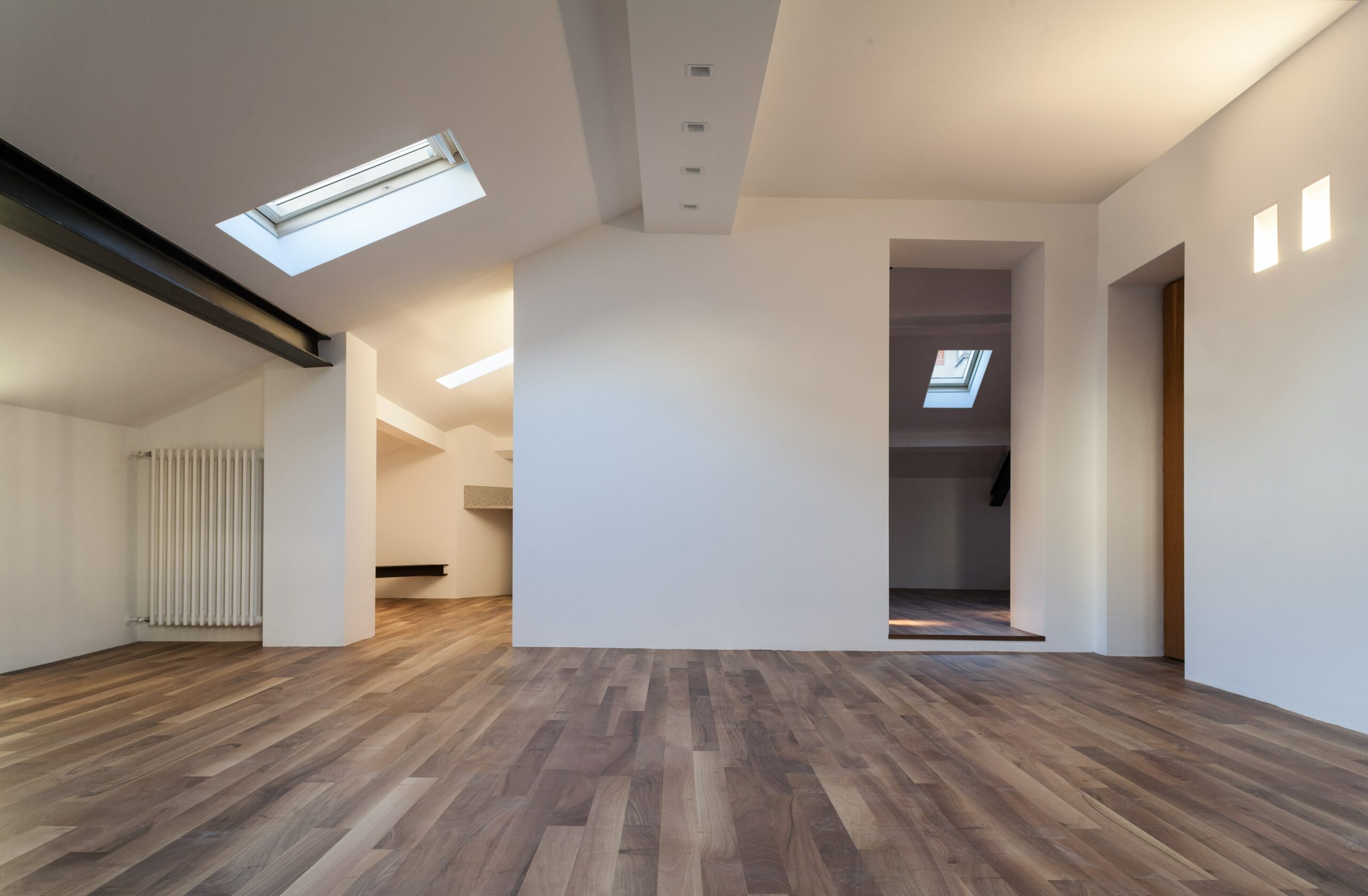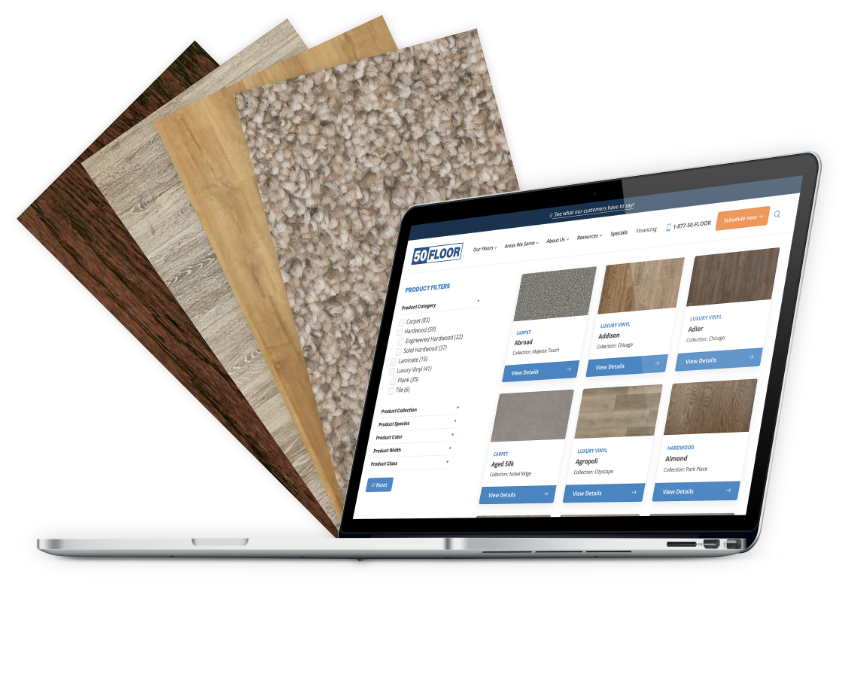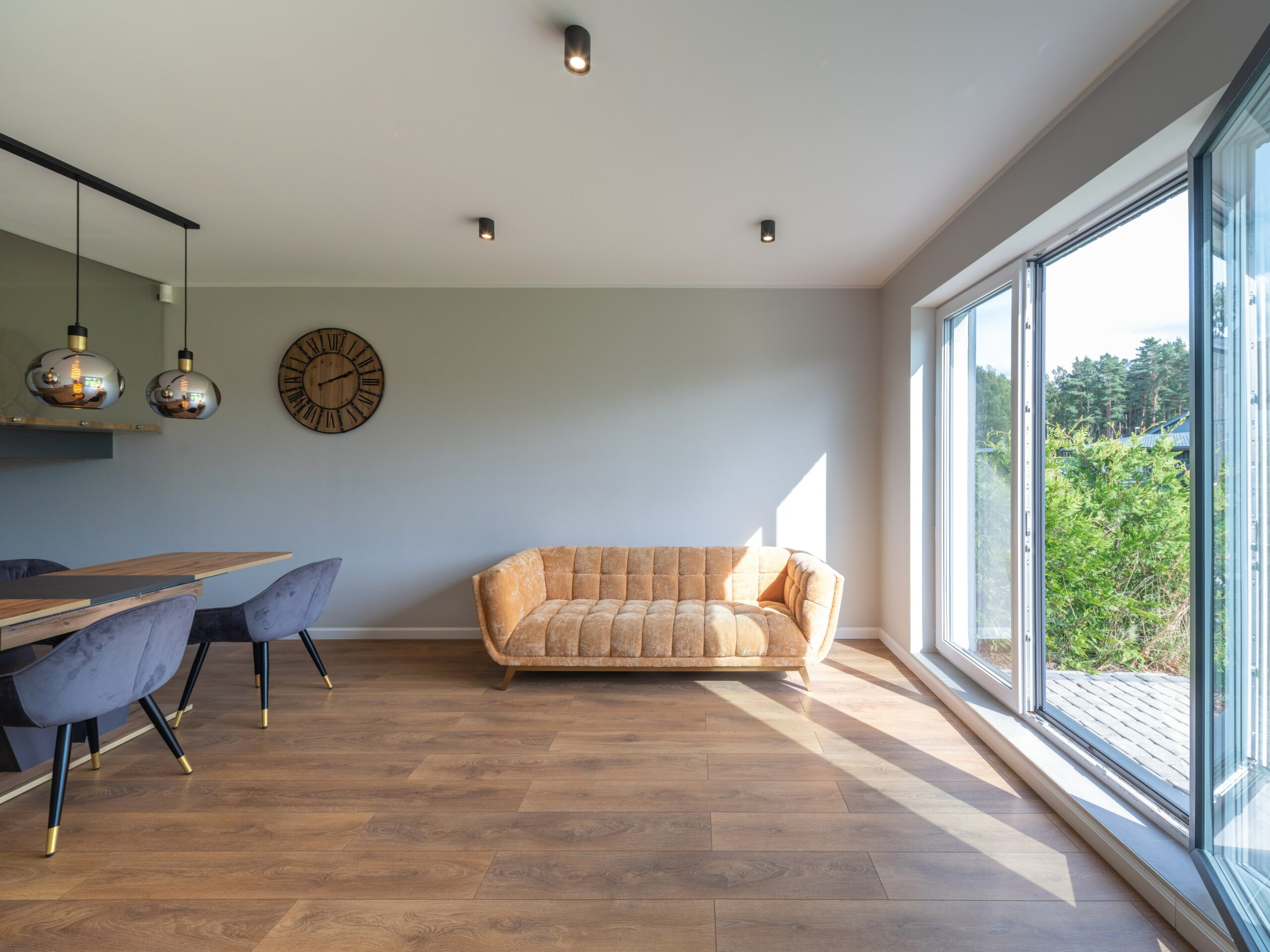Is engineered hardwood better for health? Definitely.
Engineered hardwood is better for health compared to other flooring options, especially carpets or certain vinyl.
- Unlike carpets that trap dust, pet dander, and allergens, engineered hardwood has a smooth surface that doesn’t hold onto particles, making it easier to clean and improve indoor air quality.
- Many engineered hardwoods are made with low-VOC (volatile organic compound) finishes, which reduce the emission of harmful chemicals into the air, promoting a healthier indoor environment.


- Since it’s easy to keep clean and doesn’t trap dust mites or mold, engineered hardwood is great for those with allergies or respiratory issues.
- Engineered hardwood’s moisture resistance helps prevent the growth of mold and bacteria.
Below are more details on what makes engineered hardwood one of the best floor materials for health and improved indoor air quality. And how you can make the right choice for your home.

How to Find Healthy Engineered Hardwood Floors
More and more flooring companies have become more health and environment-conscious.
That’s why they’ve made efforts in the past year to provide homeowners with sustainable flooring.
Bamboo, wool, and stone have been making their way as the leaders in sustainable flooring. And engineered hardwood flooring follows suit.
50Floor loves Mother Nature, too. That’s why we offer sustainable healthy floors to cater to every owner. Our engineered hardwood floors are made with eco-friendly materials that promote improved indoor air quality, all the while keeping you and your family safe.
Here are ways to find sustainable engineered hardwood floors:


Research Sustainable Brands
Look for brands known for their commitment to using low-VOC materials and finishes. Consider brands that prioritize sustainable practices and transparency in their manufacturing process.
Request Samples and Test
Bring samples home to test for any noticeable odor. You can also use indoor air quality monitors to measure potential VOC emissions. Allow the samples to acclimate to your home’s environment for a few days before evaluating them.
Ask About Installation Practices
If you’re sensitive to certain chemicals and adhesives, consider asking your installer about using formaldehyde-free glues.


Look for Low-VOC or Formaldehyde-Free Products
Manufacturers are becoming more aware of health concerns and offer products specifically designed to minimize VOC emissions. Look for labels such as “low-VOC,” “formaldehyde-free,” or certifications from organizations like CARB (California Air Resources Board) Phase 2 Compliant or TSCA Title VI Compliant.
Go for Water-Based Low VOC Finishes
Water-based, low-VOC finishes tend to release fewer fumes than oil-based options.
Practice Proper Ventilation
Good airflow can help disperse any potential VOCs released from the flooring. Opening windows and running fans can help improve the indoor air quality and prevent mold/mildew growth.


Engineered Hardwood vs Other Flooring Options
So, how does engineered hardwood stack up against other floor materials? Let’s find out.


Consider factors beyond health, too:
- Durability
- Moisture resistance
- Maintenance needs
- Overall style based on your personal preference
GET INSPIRED
Flooring to MATCH YOUR STYLE
Additional Health Factors to Consider
It’s not all about air quality. When choosing flooring, here are more points for a healthy home:
Hardwood flooring offers improved durability over solid wood while still providing the signature wood flooring aesthetic
Engineered hardwood floors are both easy to clean and require the same attention for maintenance.
We advise keeping hardwood free from dirt and dust to avoid scratching. For tough and sticky situations, ask the manufacturer’s recommendations for cleaning. Using entryway mats and area rugs can also help protect hardwood floors.


Engineered hardwood tends to be more resistant to moisture compared to solid hardwood
This resistance stems from its layered construction (helps prevent warping and buckling when exposed to humidity).
But this doesn’t make it completely waterproof. You still need to deal with spills immediately to prevent mold growth
Boost your floor’s health with non-toxic cleaners
Using harsh chemical cleaners can negate any health benefits you hoped to gain by selecting a low-VOC option. Natural cleaners, often made with plant-based ingredients, can effectively clean engineered hardwood floors without the harshness of chemicals.
















